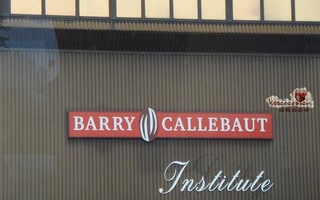 lier James Cropper has been awarded the In Green Award for its cocoa husk paper packaging. The company asked James Cropper, a British paper manufacturer, to develop a packaging based on cocoa waste in order to reduce any impact on the environment and maximise waste recovery and recycling. This innovative packaging recycles the shells (‘husk’) of the 3.5 million tons of cocoa beans produced each year.
lier James Cropper has been awarded the In Green Award for its cocoa husk paper packaging. The company asked James Cropper, a British paper manufacturer, to develop a packaging based on cocoa waste in order to reduce any impact on the environment and maximise waste recovery and recycling. This innovative packaging recycles the shells (‘husk’) of the 3.5 million tons of cocoa beans produced each year.Every single ton of dry cocoa beans processed generates ten tons of waste in the form of cocoa husk, or some 76% of the fruit. In order to turn this waste problem into an opportunity, Barry Callebaut decided to search for a partner that could further explore the idea of creating a cocoa husk packaging. The company eventually contacted paper manufacturer James Cropper to create such a packaging.
Through a series of trials, a cocoa husk paper was developed which is predominantly made up of unbleached cellulose fibre, with cocoa husk representing 10% of the fibre content. In the final process, the husk is delivered to the paper mill in pulpable bags. This means that the husks and the bags can be incorporated into the paper-making process with no need for additional processing.
Unlike other cocoa recycling processes, the bio-recycling solution does not involve burning or gradual degrading of the fibers of the cocoa husk. Also, the husk renders the use of artificial dyes unnecessary, because the cocoa husk is a natural colorant, giving the paper a light brown finishing. Thus, cocoa waste is re-engineered to become its final product ideal packaging.
With the cocoa husk paper, Barry Callebaut says that it paved the way for millions of chocolate products to be wrapped in an eco-friendly packaging that is based on recycled waste from the raw product: an elegant bio-recycling breakthrough for the chocolate and paper industry.





